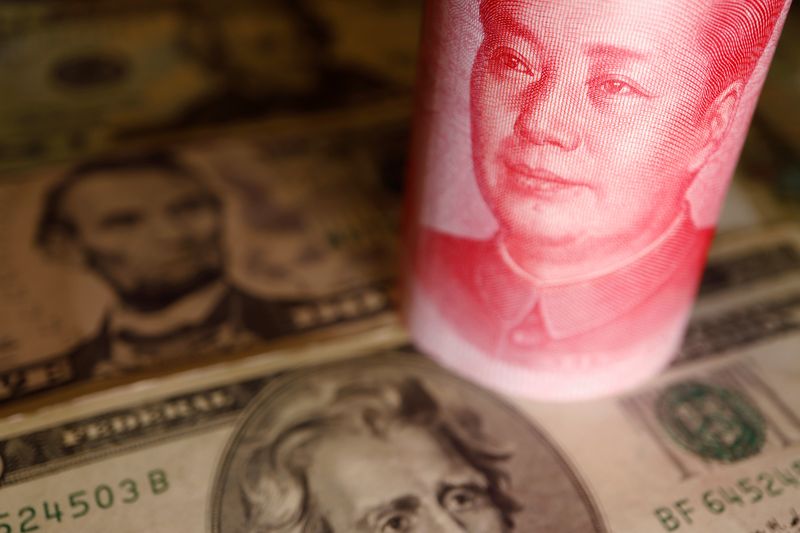By Tom Westbrook
SINGAPORE (Reuters) – The rising yen stabilized on Monday after Japan’s new prime minister signaled monetary policy should remain accommodative, while the dollar fell against commodity currencies, supported by investor expectations of a turnaround in China’s economy.
The Japanese yen rose on Friday as Shigeru Ishiba, a former defense minister and former critic of aggressively easy policies, took charge of the ruling Liberal Democratic Party, which controls parliament and will vote him into office.
The yen fell about 0.4% to 142.75 per dollar, after jumping 1.8% on Friday. Ishiba told public broadcaster NHK that from the government’s point of view, the policy should remain accommodative as a trend given the current economic conditions.
Analysts said this was enough to pause the yen’s sharp rise following his victory and that the likelihood of early elections in the coming months – something Ishiba alluded to on Sunday – could weigh on the yen at least in the short term .
“An election effectively takes the Bank of Japan out of the equation until December…a marginal yen negative,” said Ray Attrill, head of currency strategy at National Australia Bank (OTC:).
Elsewhere, the euro was steady at $1.1172 and sterling traded at $1.3381, with markets looking to US jobs data on Friday as the next key data point that could guide the pace of US interest rate cuts.
Tuesday’s European inflation data and Chinese figures due later on Monday are also eagerly awaited.
The Australian and New Zealand dollars were trading near the 2024 highs they reached on Friday, as interest rate cuts and expectations of budget support in China boosted hopes for an improvement in the slowing economy.
The Australian dollar rose 0.3% to $0.6920 after rising to a 20-month high of $0.6937 on Friday. The New Zealand dollar rose 0.3% to $0.6360 after hitting its highest since December on Friday.
Last week, the US Federal Reserve’s preferred inflation measure showed inflation at a fairly mild 2.2% for the 12 months to August, pushing US yields and the dollar lower.
“The trend for next year is for the dollar to fall,” said Commonwealth Bank of Australia (OTC:) strategist Joe Capurso.

“Inflation is under control. Interest rates are coming down, which is good for the global economic outlook, good for risk-taking and good for commodity currencies like .”
Beijing’s raft of stimulus measures fueled a rally last week even as interest rates were cut, as investors flocked to Chinese stocks, which posted their best week in a decade. The yuan broke the psychological barrier of 7 per dollar in offshore trading on Friday and was last at 6.9761 before the onshore open.


